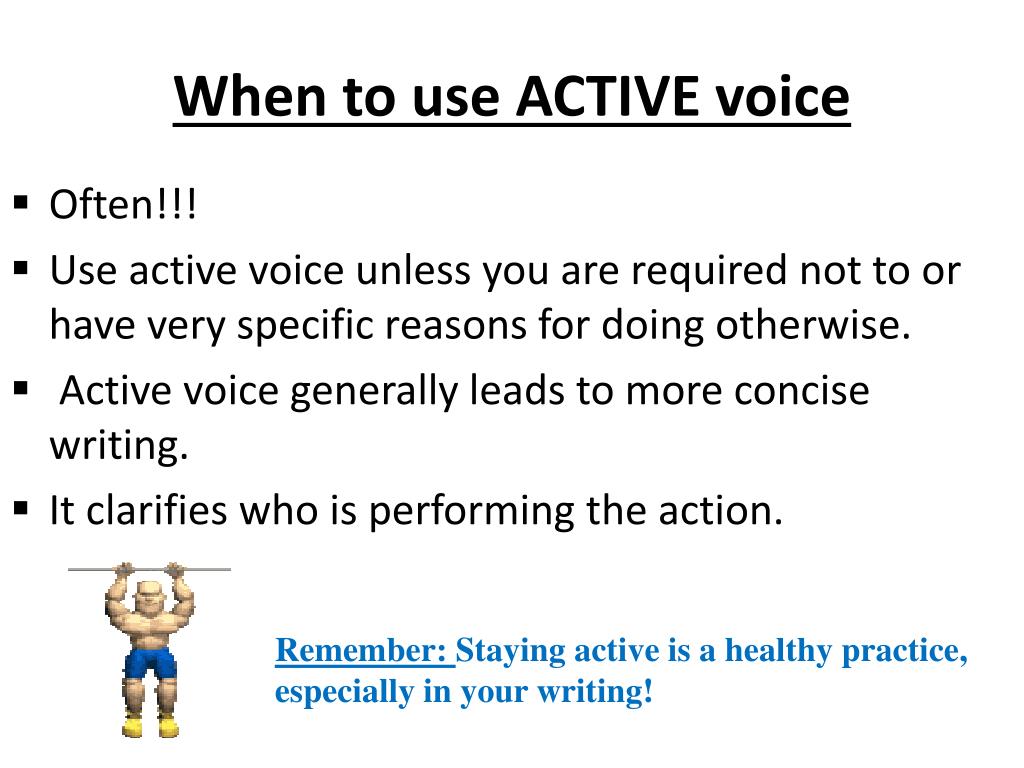

We hope this handout will help you to understand the passive voice and allow you to make more informed choices as you write. Some even adopt a first person point of view when it was not even their personal experiences they are writing about.This handout will help you understand what the passive voice is, why many professors and writing instructors frown upon it, and how you can revise your paper to achieve greater clarity. In fiction writing, authors use point of view or voice in different ways to further the story. When in doubt, it is safer not to use first person (I, me, my, we, us, our) unless of course the assignment calls for a personal response. First person may be appropriate for particular assignments depending upon the instructions. Generally, second person (you, your) should not be used in college writing. Third Person Restatement: Pedestrians should look carefully before crossing the street. Second Person Implied (Understood) You: Look carefully before crossing the street. Even though the word you is not expressed, it is understood. When you give directions or advice to the reader, you are using omitted you second person. Third Person Restatement : Parents with children living at home should know what their children are doing. There are readers whose children are not living at home.


There are readers who do not have children. The you not intended to include every reader. Literally, this sentence doesn’t say what it means. While we use you in everyday speech, the use is really not a specific reference. Second Person: You should know what your children are doing. Using Second Person creates a lack of clarify. Third Person Restatement : The best way to resolve problems with children is through the parents. When we want to establish ourselves as an authority instead of simply giving our opinion, it is critical to use third person and not first person. Third person is more removed and lends a more academic tone.įirst Person: In my opinion, the best way to resolve problems with children is through the parents. Sometimes for a formal paper or a specific assignment, an instructor may tell you to not use the first (I, me, my, we, us, our) or second person (you, your). I didn’t go to that restaurant because you knew it has the best pizza.Ĭorrected: I went there because I knew it had the best pizza. It literally is not conveying the intended meaning. Pronoun shift: I went to that restaurant because you know it has the best pizza. When we write, we have to be consistent and specific.

We frequently use first person I and second person you and we shift between all three voices. Third person – he, she, it, they, him, her, them, his, hers, theirs or any noun such as people, society, parents, society, students, teachers Second person – you, your including omitted (understood) you sentences where the subject you is dropped such as in commands or instructions A writer may alter point of view and speak from another perspective, such as the reader’s or listener’s point of view, or from a bystander’s or third person’s point of view in addition to our own.Ĭonsequently, there are said to be three persons in writing: As a literary tool, however, point of view is not exactly the same as perspective. Whether we are writing or speaking, we use language from a point of view – our own personal perspective. Passive voice is appropriately used when the purpose of the sentence is what was done to the subject and not the action of the subject. (The action is happening to the subject.) Passive voice is when the sentence is phrased so that something is being done to the subject. Generally, we speak and write in active voice which is considered more clear and direct. (Jade is existing in a particular status.) Active voice is when the subject is doing the action or existing as the status.


 0 kommentar(er)
0 kommentar(er)
